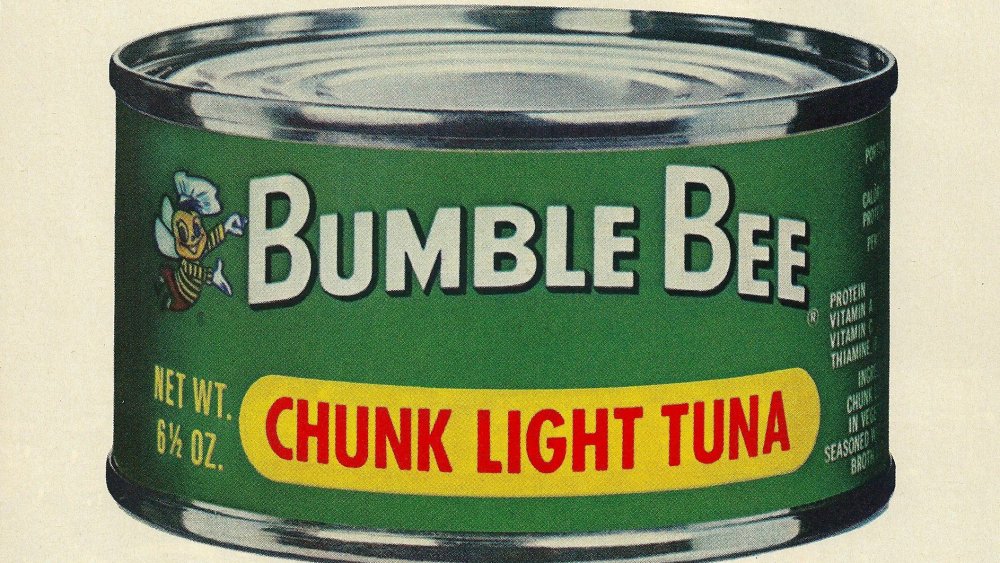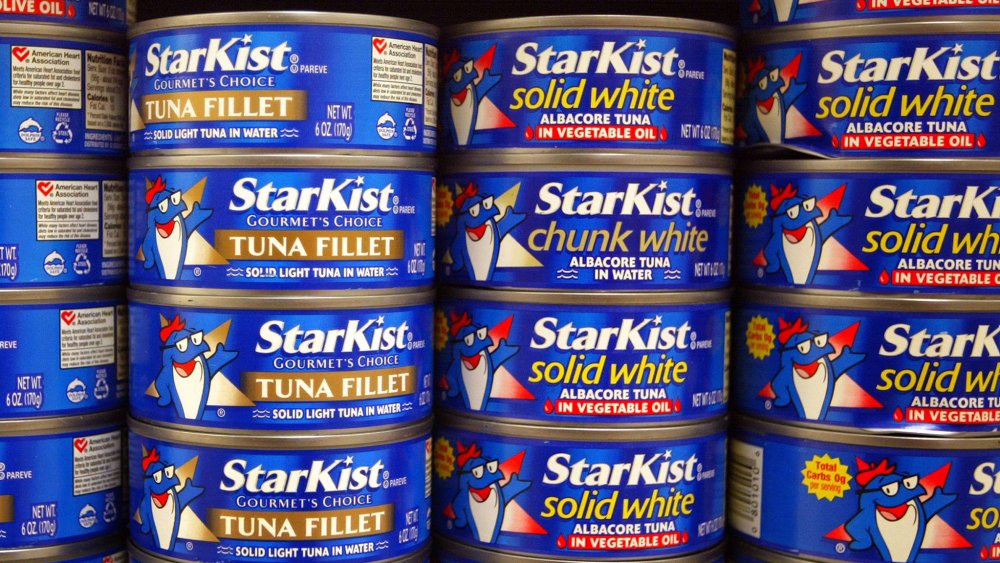How Major Tuna Brands Scammed You
It turns out that Bumble Bee tuna contains more "bumble" than "bee" because in 2019, Bumble Bee Foods capped off an awful year by filing for bankruptcy. Chapter 11 wasn't even the worst chapter of the story. Per the U.S. Department of Justice, the company's former CEO, Christopher Lischewski, confessed to orchestrating a three-year price-fixing conspiracy that impacted over $600 million in tuna sales. As Eater details, between 2010 and 2013, Bumble Bee teamed up with StarKist and Chicken of the Sea to keep the price of canned tuna artificially high in response to slumping sales. The three amigos had previously agreed to reduce their can sizes from 6 ounces to 5 and start a PR campaign for their fish.
True to its name, Chicken of the Sea chickened out and began working with the feds. As a result, the company escaped unscathed. Meanwhile, StarKist got slapped with a $100 million fine, Bumble Bee felt the sting of a $25 million penalty, and Lischewski was sentenced to 40 months in the can. According to a June 2020 report by KOMO News, Washington state Attorney General Bob Ferguson has decided to sue Starkist and Lischewski for costing residents an extra $6 million. That might fix the price-fixing problem, but unfortunately, tuna brands have an uncanny knack for deception that goes as deep as the sea.
'Tuna' isn't always tuna, and 'dolphin-safe' isn't always dolphin-safe
The word "tuna" might not mean what you think it does. The term is actually a catch-all description for 61 species of "tuna and tuna-like fish," according to Oceana. Only 14 of those species meet the scientific criteria for "true tuna." Canned tuna tends to contain albacore, yellowfin, or skipjack varieties. A 2017 report by the Pantagraph explains that albacore is also described "white meat" tuna while the latter two are sometimes referred to as "light tuna." The outlet also said that skipjack accounted for roughly 70 percent of America's canned tuna. Except, it isn't technically tuna. As the BBC observes, "skipjack" is another name for the bonito, which is a cousin of true tuna.
And you know those "dolphin-safe" labels that tuna brands plaster on cans to placate your conscience? According to a Forbes piece by K. William Watson of the Cato Institute, "dolphin-safe" only indicates that fishing methods deemed harmful to dolphins were not used in some part of the ocean. Moreover, in 2019, your favorite trio of price-fixers — Bumble Bee, StarKist, and Chicken of the Sea — were named in a class-action lawsuit accusing them of falsely labeling cans as dolphin-safe (via CBS News). The companies allegedly failed to physically separate dolphin-unsafe tuna from the dolphin-safe catches... or even trace it.

